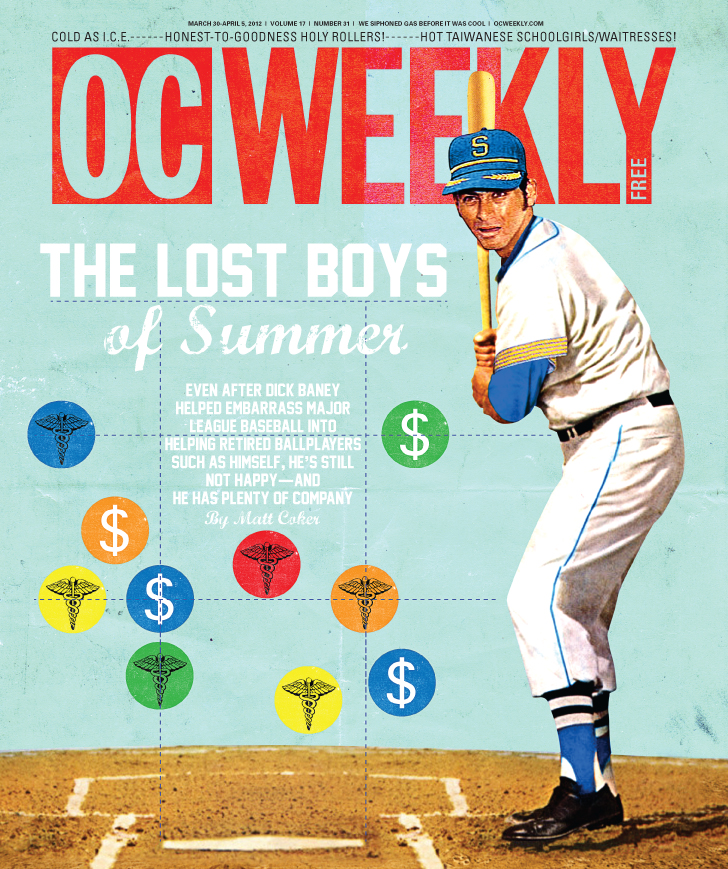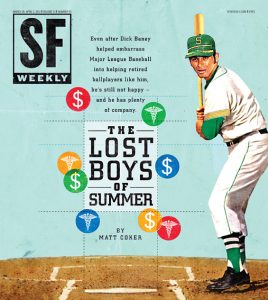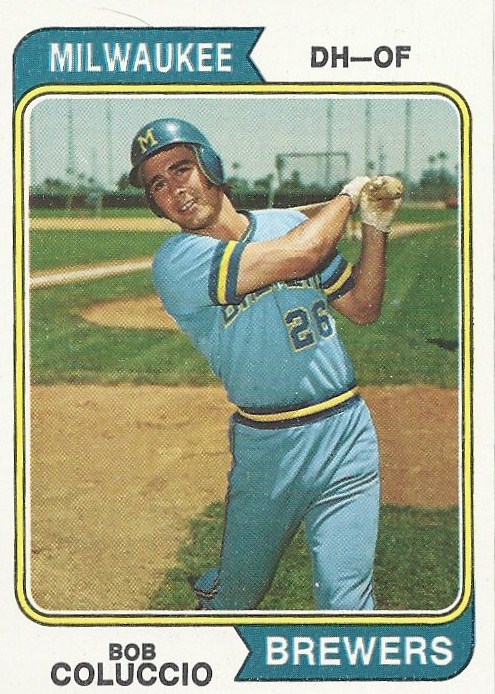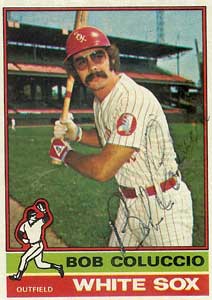
Editor’s note: In 2012, I wrote an award-winning package of print and online stories on a quirk in Major League Baseball’s collective bargaining agreement with current players that freezes out some older players from receiving full pensions and medical coverage. “Dick Baney and the Other Lost Boys of Summer” was an Orange County story because the former player leading the charge to do away with the pension quirk resides locally. However, my story also appeared in other alternative newsweeklies owned by OC Weekly‘s then-chain of papers because hundreds of lost boys lived all over the country.

Fast-forward seven years, and some of the ex-players have gone to that great dugout in the sky, while a whole new crop of former minor and major leaguers reached retirement age–without the full pensions afforded to dirt baggers who came up to the Bigs in the years before and after they did.
The list includes another Orange Countian, according to Douglas J. Gladstone, the freelance writer who has extensively covered the MLB pension issue for years and even wrote a book about it. He is the passionate advocate for these retirees who (pardon the pun) pitched me the idea of talking to Dick Baney, which led to my own coverage.
What follows is a story Gladstone has allowed me to share with OC Weekly readers on the plight of “The Macaroni Pony,” yet another OC inductee into a very sad club.
By DOUGLAS J. GLADSTONE
For a sport that relies heavily on older fans watching its product, Major League Baseball (MLB) sure treats its retired players disrespectfully.

Take 67-year-old Bob “The Macaroni Pony” Coluccio, for instance. The Costa Mesa resident was a speedy outfielder who played parts of five seasons with the Milwaukee Brewers, the Chicago White Sox and the St. Louis Cardinals.
In 370 games, Coluccio came up to bat 1,095 times, scored 141 runs, drove in an additional 114 and collected 241 hits, including 38 doubles, 15 triples and 26 home runs.
But because of a family illness, Coluccio had to retire from the sport just 35 game days shy of a MLB pension.
Coluccio and 632 other men do not get pensions because they didn’t accrue four years of service credit. That was what ballplayers who played between 1947 – 1979 needed to be eligible for the pension plan.
Instead, they all receive non-qualified life annuities based on a complicated formula that had to have been calculated by an actuary.
In brief, for every 43 game days of service a man had on an active MLB roster, he’d get $625, up to the maximum of $10,000. And that payment is before taxes were taken out.
“To me it’s like saying we want to invite some of our family members to dinner,” says Coluccio, “but they have to eat in the kitchen.”
For his three and three-quarters years of service, Coluccio gets a net payment of approximately $6,262. Meanwhile, the maximum allowable pension a vested retiree can earn is $225,000.
When the non-vested, 1947-1979 player dies, the payment is not permitted to be passed on to a designated beneficiary, such as a spouse or other loved one. So when he dies, Coluccio’s payments won’t go to his wife, Terry.
By contrast, the loved ones of men who played after 1980 do receive death benefits. And they’re eligible for a pension after only 43 game days.

Men such as Coluccio are being penalized for playing in the majors at the wrong time.
The absurdity of the situation can best be summed up as follows: Let’s say the Los Angeles Dodgers call you up on Aug. 15 and you stay on the team’s roster through Oct. 1. Though he clearly had more service credit than you, Coluccio doesn’t get a pension but you do. Just for sitting on the bench for 43 game days.
You have to wonder why this sad situation persists. After all, according to data recently released by Street & Smith’s Sports Business Journal and Magna Global, the average age of a baseball viewer is 57, up from 52 in 2006. Of the top major sports, the national pastime has the oldest viewers, with 50 percent of its audience 55 or older, according to Nielsen ratings. The average age of baseball viewers is 53, compared with 47 for the NFL and 37 for the NBA, according to the ratings. Similarly, according to DemographicPartitions.org, half of MLB’s fan base is 55 and older.
Is our national pastime guilty of ageism? It’s certainly a fair question to ask, considering the 30 club owners recently wrote a $10 million check to the National Baseball Hall of Fame in Cooperstown.
That’s right: The owners chose museum relics rather than flesh and blood retirees.
Douglas J. Gladstone is a freelance magazine writer and author of two books, including A Bitter Cup of Coffee: How MLB & The Players’ Association Threw 874 Retirees a Curve. Visit his website: http://www.gladstonewriter.com.

OC Weekly Editor-in-Chief Matt Coker has been engaging, enraging and entertaining readers of newspapers, magazines and websites for decades. He spent the first 13 years of his career in journalism at daily newspapers before “graduating” to OC Weekly in 1995 as the alternative newsweekly’s first calendar editor.


Keep up the great work Doug! I wholeheartedly thank you for your tenacious commitment to fighting this egregious wrong.
God Bless all in your house!
Thanks Kevin. Hope all is well.
CBD exceeded my expectations in every way thanks https://www.cornbreadhemp.com/blogs/learn/cbd-gummies-dosage-guide . I’ve struggled with insomnia on years, and after tiring CBD for the key time, I for ever experienced a full nightfall of calm sleep. It was like a force had been lifted misled my shoulders. The calming effects were merciful still intellectual, allowing me to drift slow naturally without sensibility woozy the next morning. I also noticed a reduction in my daytime apprehension, which was an unexpected but allowed bonus. The cultivation was a bit lusty, but nothing intolerable. Overall, CBD has been a game-changer in compensation my siesta and angst issues, and I’m appreciative to procure discovered its benefits.